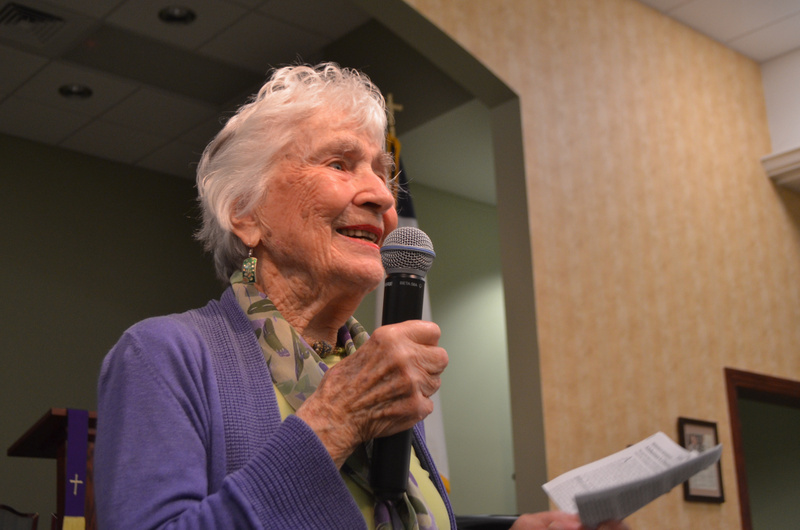
Dr. Alois Alzheimer died in 1915, only seven years before I was born. The German psychiatrist and neuropathologist is known for identifying the first published case of the disease that bears his name.
As I turn 100 years old, I feel fortunate to have my “wits about me” and to be able to work on a new book, volunteer for causes important to me, and navigate the Zoom menu well enough to go “off mute” to participate in meetings and webinars. At my age, I’m still surprisingly in demand and am thankful that throughout each week I can interact with families, professionals, and students.
The last 40 of my 100 years have been spent working in the field of dementia care, but I recall stories from my childhood about an aging neighbor who had been “put away.” Many elders in Dr. Alzheimer’s time and in the early years of my life were sent to lunacy asylums because of dementia-related behavior. When I started working at the University of Kentucky Sanders Brown Center on Aging Alzheimer’s Disease Research Center in the 1980s, we weren’t all that far removed from Dr. Alzheimer’s era. There was little understanding about how to improve quality of life for persons living with dementia and their care partners. Experiencing fear and shame, it was not uncommon for families to ask me to mail information from the Center in an unmarked envelope.
Today, we have seen an enormous growth in awareness and services, including educational programs, support groups and rich content on the Web.
Much of the stigma, fortunately, has fallen away, aided by President Reagan’s announcement of his diagnosis of Alzheimer’s disease in 1994 and, more recently, Tony Bennett and Bruce Willis. Thanks to the advocates at the Alzheimer’s Association, we have seen a robust increase in research funding, now more than $3.2 billion. I’ve never been more optimistic that we will have simpler diagnostic tests and more effective medicines soon.
Until that time, the good news is that we do understand now how to help the person with dementia lead a better life:
Keep the person healthy. Eat brain-healthy foods inspired by the Mediterranean diet. Encourage hydration during these hot summer months. Exercise. Address treatable medical conditions including high blood sugar, depression, and pain that left untreated can damage quality of life.
Create opportunities for social engagement. The brain loves company. Time spent with friends and family, visiting a faith community, watching a little league game, enjoying music, gardening, or accomplishing simple chores around the house help the person feel valued, and productive, and a part of life.
Be a “best friend” to the person with dementia. Practice empathy and understanding. Show your affection. Offer supportive words. Discuss favorite stories and accomplishments from the person’s life. Know that when problems come up, it’s the disease not the person.
As I near the century mark, I am asked, “What do you want for your birthday?” Certainly, I do not need or want material things. Instead, I want to ask my friends, neighbors, and family to make their communities more dementia friendly. Learn all you can and share your knowledge with others. Keep a watchful eye on elderly neighbors. Advocate for enhanced services. Support the Alzheimer’s Association, and other local non-profits trying to make a difference.
Dr. Alzheimer’s patient Auguste Deter, the first person diagnosed with Alzheimer’s disease, died in a mental hospital in 1906 at the age of 55. “I have lost myself,” she told him. Today we would know just what to say: “Come with me. Let me help. You are among friends.”